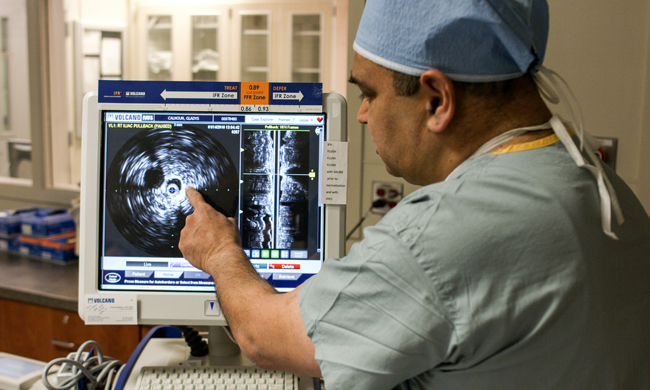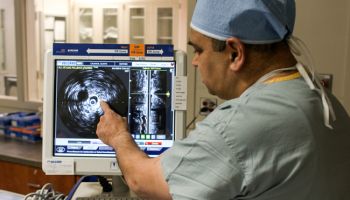A California family is troubled after a huge lack of compassion and empathy was shown to them at Kaiser Permanente Medical Center in Fremont, California.
78 year-old, Ernest Quintana, had been a patient of Kaiser throughout his health struggles. He suffered from chronic obstructive pulmonary disease, a progressive lung disease. The disease makes it hard for patients to breathe and it includes emphysema and chronic bronchitis.
The issue family of Quintana is struggling to understand is why the facility felt it was appropriate to have a robot equipped with a video screen to deliver painful news.
Last Monday evening, Annalisia Wilharm was bed-side with her grandfather in the ICU of Kaiser Medical Center. Shortly after relieving her mother and grandmother for the night, a nurse who remained silent and the unfavorable machine rolled into the room. An unfamiliar doctor who appeared via live video link, revealed the traumatizing news to them.
The robot told her grandfather that the hospital had run out of effective treatments and he did not have long to live. Wilharm said her grandfather could hardly hear what the machine was saying, to the point where she had to tell him herself that he was dying. She said the machine essentially told Quintana, “you might not make it home.”
Wilharm recorded the encounter with the impersonal robot on her phone.
“I think they should have had more dignity and treated him better than they did,” Wilharm told CNN.
Sadly, the family of Quintana already knew that he would die soon. They were under no illusions about his condition.
They hope bringing this issue to light will result in no one else receiving the same ill-treatment.
“We take this very seriously and have reached out to the family to discuss their concerns,” said Michelle Gaskill-Hames, a senior vice president and area manager of Kaiser Permanente Greater Southern Alameda County.
Gaskill-Hames claims the hospitals physicians and nurses were in and out of the room regularly. She says in-person communication with the family and patient about his condition began the moment he arrived to the facility. She added, “the evening video tele-visit was a follow-up to earlier physician visits — it did not replace previous conversations with patient and family members and was not used in the delivery of the initial diagnosis.”
Wilharm said previous visits with the in-person doctor went very well. The doctor was “very sweet” according to Wilharm and extremely empathetic, holding her grandfathers hand when speaking about hospice care options.
Source: CNN, BallerAlert, YouTube
















